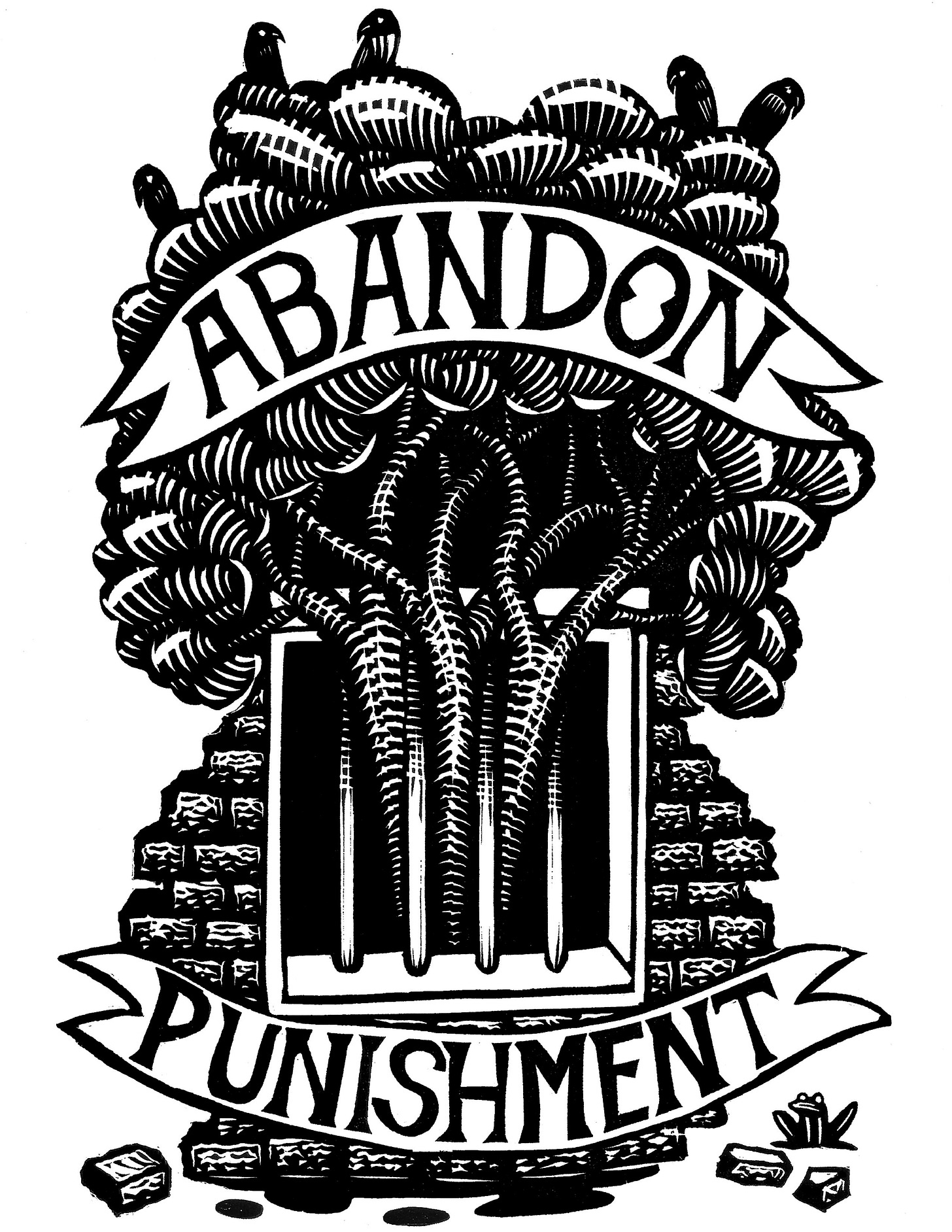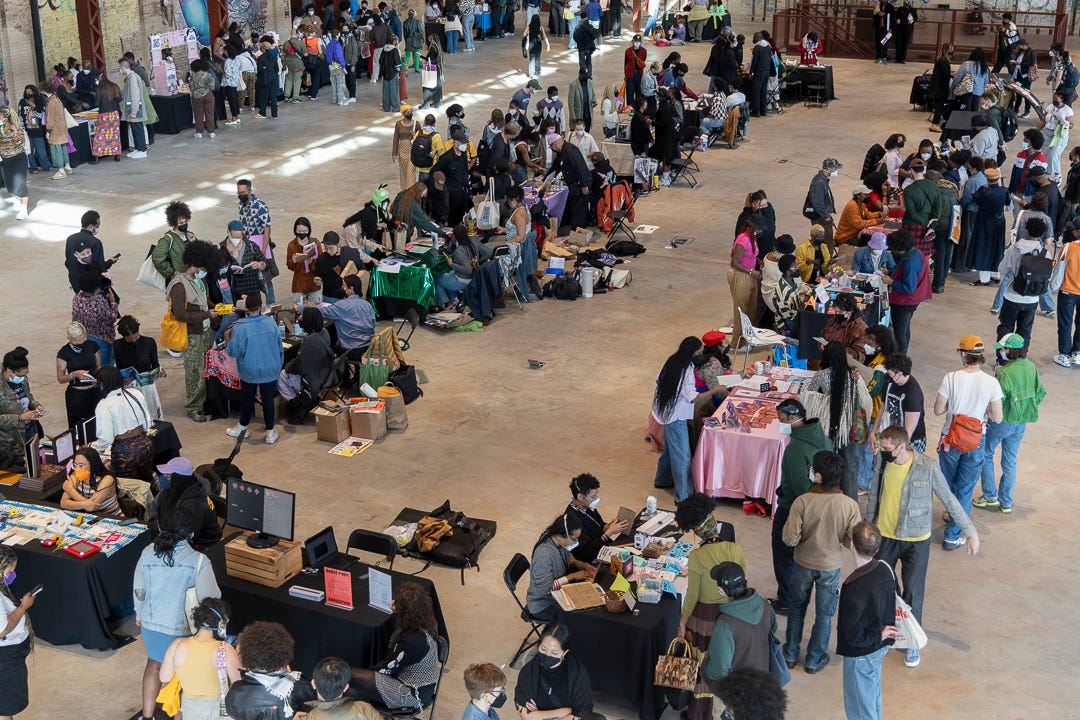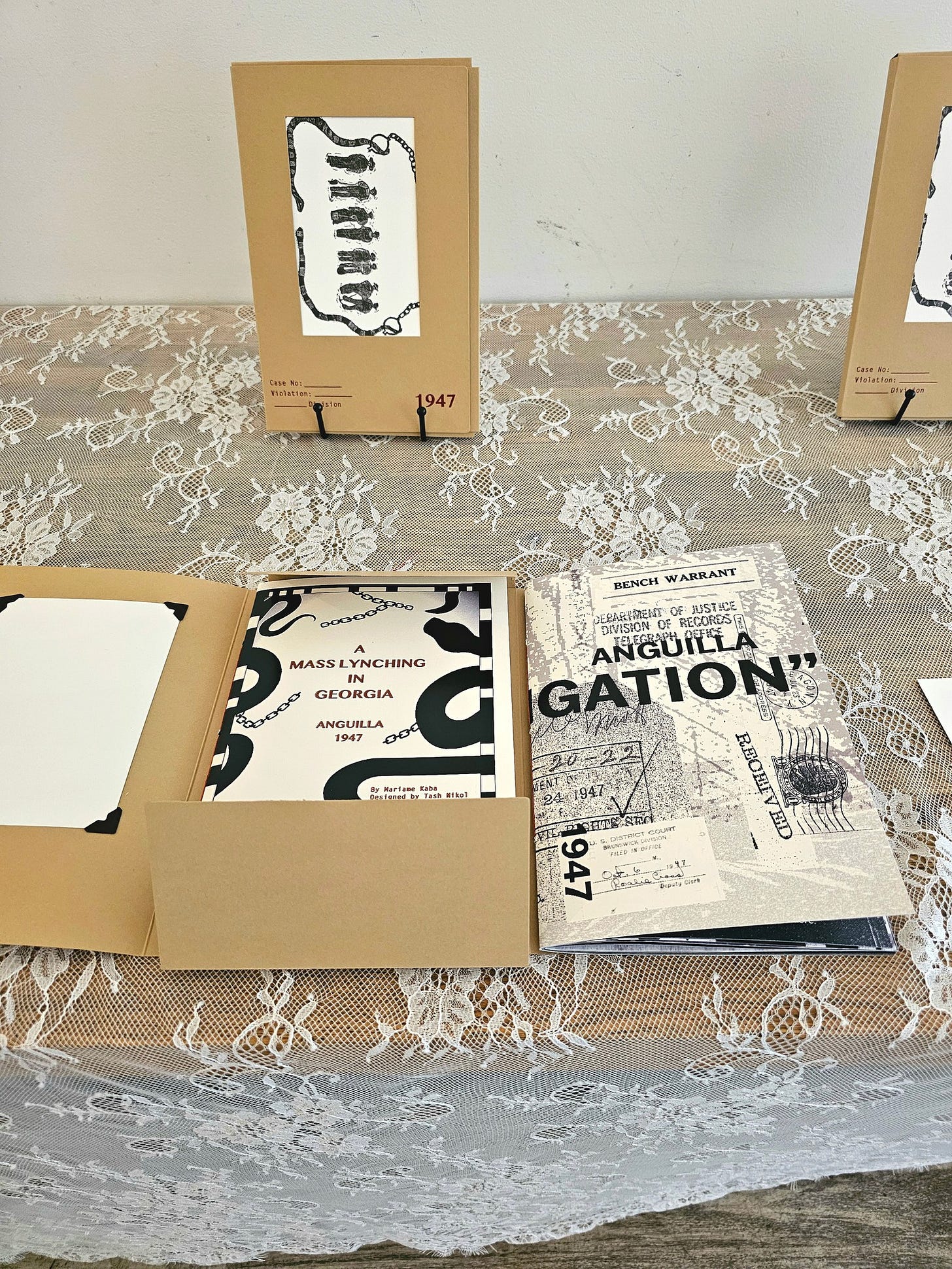It’s been an incredibly busy few weeks. I am looking forward to some rest later this month. I can’t believe that the year is already half over.
Our Black zine fair last month was a huge success! We are so grateful to our cosponsors, exhibitors, volunteers, and everyone who attended. The space was joy, community, creativity, love, a balm, beauty, and fellowship all bundled together. We need more such spaces everywhere.
Sojourners for Justice Press (SJP) is curating a mini Black zine fair as part of the Schomburg Center’s Literary Festival on June 15. Join us!
In this month’s edition of Prisons, Prose & Protest, I share some thoughts about 19th-century social reformer Charles Whipple and a pamphlet he wrote. I share a new zine that I hope you will download and share with incarcerated comrades, I recommend a wonderful podcast episode, several good recent articles, and much more….
Prisons/Policing
Charles King Whipple’s 1860 pamphlet Non-resistance applied to the internal defense of a community, a copy of which is in my personal collection, is an effort to apply Christian pacifist principles to policing and imprisonment. It advocates for moral changes that seek to cleanse law-enforcement through reform measures. In some respects, however, it anticipates some prison industrial complex (PIC) abolitionist arguments and perspectives.
Whipple was born in 1808 to a fundamentalist Christian family that believed in the literal meaning of the Bible. After graduating from Amherst College in 1831, however, Whipple heard theologian Theodore Parker preach. Parker believed true Christians should follow Christ’s example rather than the literal word of the Bible. Convinced by Parker’s teachings, Whipple joined the 28th Congregational Society of Boston, Parker’s church.
Whipple worked as an apothecary in Boston; he also became deeply involved in abolitionist causes. Besides serving as the treasurer of the New England Anti-Slavery Society, he helped edit William Lloyd Garrison’s well-known antislavery newspaper, the Liberator. He also published several tracts and pamphlets, including the pacifist Evils of the Revolutionary War (1839) and the abolitionist The Methodist Church and Slavery (1859).
Whipple’s 30-page Non-resistance applied to the internal defense of a community aims to “show the practical application of Non-Resistance principles to the treatment of criminals.” Whipple argues for a pacifist Christian government that forswears all “injurious force,” and that focuses on reform rather than punishment.

The pamphlet presents an argument for eliminating some violent and harsh law enforcement practices. For example, Whipple calls for an end to capital punishment, which he says, “gives the sanction of legitimate authority to the practice of overcoming evil with evil.” Whipple also believes that cops should not carry “deadly weapons.” He even suggests that law enforcement officers should be willing to die rather than use lethal force against suspects or offenders.
In the main, however, Whipple’s proposals are more reformist than abolitionist. He does not seek to abolish police; instead, he advocates for better and even “perfect” police, who will use moral suasion to overwhelm wrongdoers. He proposes that more women be encouraged to become corrections officers, emphasizing their “noble character” and “the tenderness of a feeling heart.”
He suggests the police force should be made up of men who possess a “mighty moral power” like abolitionist and prison reformer Isaac T. Hopper. This moral power and strength, Whipple believes, would compel the majority of those arrested to choose “quiet surrender” over “violent resistance.”
Similarly, Whipple does not advocate to abolish imprisonment. Instead, he argues prisons should be organized more like mental asylums—he makes no mention of the abuses that occurred in asylums during this time period—and should focus on cures and reform. He further contends that if people are not reformed, prison authorities should never release them, effectively giving them the power and authority to hold all prisoners indefinitely or for life.
The pamphlet also suggests a nascent Broken Windows approach to social control, advocating for harsher policing of gambling, drinking, and other vices. Whipple believed this would lead to less imprisonment and punishment overall, but the experience of Prohibition and the modern Drug War suggests otherwise.
While Whipple’s reform proposals are not always convincing or well-thought-out, he delivers a powerful critique of the violence and immorality within the prison system. His insistence that a new approach is required is also important. Even if you know you need a new house, he argues, moving to a new one can feel like it poses insurmountable challenges. But those challenges must be overcome while moving homes. It’s much more important to overcome the status quo in transforming a system that, as Whipple forcefully contends, cannot be reconciled with Christ’s example.
Publishing
I read Frank Browning’s essay “Organizing Behind Bars” years ago and used to mail copies to incarcerated comrades. Then for some reason I can’t remember, I stopped doing so. A couple of years ago, I decided that the essay should be back in circulation. I reached out to Andrea Kszystyniak to design a zine of the essay that also includes the Folsom Manifesto. I hope that this zine will be shared with incarcerated comrades who might be interested. I plan to send some copies to my friends inside. Read and download the zine here.
The art book about the Anguilla Prison Camp massacre that Tash Nikol and I worked on is done, and we celebrated the occasion with friends and comrades last month. We created an altar in memory of the men murdered at the Anguilla prison camp, which was incredibly moving for me. The book is a beautiful memorial and is now available for purchase. Those interested in purchasing a copy of the book can email jjinjustice1@gmail.com. It’s priced for collectors because it was expensive to make and is a fundraiser for Survived and Punished NY (SPNY).
Prose
Palestinian American writer Elena Dudum discusses her family’s efforts to archive Palestinian history in the face of—and as a tool to fight—Israel’s genocide. #FreePalestine
This article about families organizing against inhumane bans on in-person jail visits highlights the cruelty that permeates the carceral system.
This New Republic article reflects on the state of public safety in Minneapolis four years after the uprising there sparked by George Floyd’s murder. The author, sociologist Michelle Phelps, details a major reduction in police staffing and an increase in support for nonpolice responses to community crises. I agree with her conclusion that “these new initiatives are the legacy of the defund movement, which still shapes the local politics of policing today. Its true impact will be measured in years, not months, and by our collective will for change.”
I appreciate how this historian of US campaigns for divestment from South Africa situates the recent campus antigenocide protests in the tradition of radical student organizing. I hope campus organizers will read this and be fortified by the powerful history they are building on.
In Mother Jones, nia t. evans writes about the toxic combination of antiprotest sentiment, corporate greed, and reactionary politics that has led to a Georgia law making it extremely difficult for community members and bail funds to bail people out.
It’s so important to talk about how people begin organizing, as Cheryl Rivera does in these interviews with renters who have become tenants’ rights activists. I love how one of the organizers describes the power of collective action: “At the end of the day it’s about who is there more of, us or y’all? As we say, they can’t evict us all. Are you going to fix the building? Give up the building? Because we’re here. Once other people start realizing that, it’s over.”
Podcast
Whenever a new revelation of violence or abuse is in the news, social media is rife (for a day) with “well, what do the PIC abolitionists have to say about x, y, z now?” For some, the question is sincere and can encourage deeper study, but many people don’t actually care.
I think that it’s more interesting to pay attention to what abolitionists have been and are making/creating inside and outside the prison walls. I listened to this wonderful bonus episode of One Million Experiments about the work of Collective Justice a couple of weeks ago and it was a balm. I share it with all of you and invite you to listen, too. And if you embrace abolitionist politics and vision rooted in transformative justice, better to focus on experimenting, doing, and making things, as the wonderful organizers at Collective Justice do, than on responding to disingenuous arguments. Life is short, I want to spend my time doing useful things with others. Perhaps that’s true for you too.
Poem
In “roots,” Lucille Clifton celebrates the indomitable aliveness that has been passed down to her.
Potpourri
Stop by SJP’s mini Black zine fair that is part of this year’s Schomburg Center LitFest on June 15 from 11 to 6 pm.
I am facilitating a new walking tour about Black women in Greenwich Village as a fundraiser for SPNY on July 13! Suggested donation is at least $25. Again, this is a fundraiser. I raised over $550 through the Radical Black Women of Harlem tour.
We’re reading about Lydia Maria Child this month and discussing her life and legacy on June 30 for our Life Stories of Anti-Slavery Abolitionists book discussion group. Join us!
Nominate someone for the Ann Snitow Prize “for an outstanding feminist intellectual/artist and activist working in the United States.” I was honored to be recognized with the prize a couple of years ago.
Host a lemonade stand to engage your neighbors about your local public libraries as part of Libraries and Lemonade.
I highly recommend listening to the stories of post-incarceration reentry that make up You Matter. I learned so much from the thoughtful people interviewed for the project, which describes its purpose like this: “You Matter is a culturally relevant, trauma-informed therapeutic support model for individuals who have served long-term prison sentences. The purpose of You Matter is to use the power of art and the humanities to address the issue of mass incarceration through meaningful conversations and intentionally curated services. Interviews were conducted with formerly incarcerated individuals in service of highlighting their varied stories of reentry, and these narratives serve as the foundation of our work. By sharing these personal stories we aim to challenge social perceptions and biases, promote equity, and inspire positive change.”
I really like this zine from the Justice Beyond Punishment Campaign (JBPC) about avoiding hierarchical messaging in anticarceral advocacy work.
I discovered a new band and their music through this interview that mentions me and Alice Wong…
I purchased this beautifully created art book about care & abortion at the NY Artbook Fair in April.
If you have 15 minutes, watch this until the end.
We all need to have some good break up songs in our back pockets just in case.
Cool Library Thing of the Month
A wonderful lecture by Dr. Tracy Denean Sharpley-Whiting about the fascinating life and work of Belle De Costa Greene. If you’re in NYC, the Morgan Library will have an exhibition about De Costa Greene, who was its first director, opening in October.






